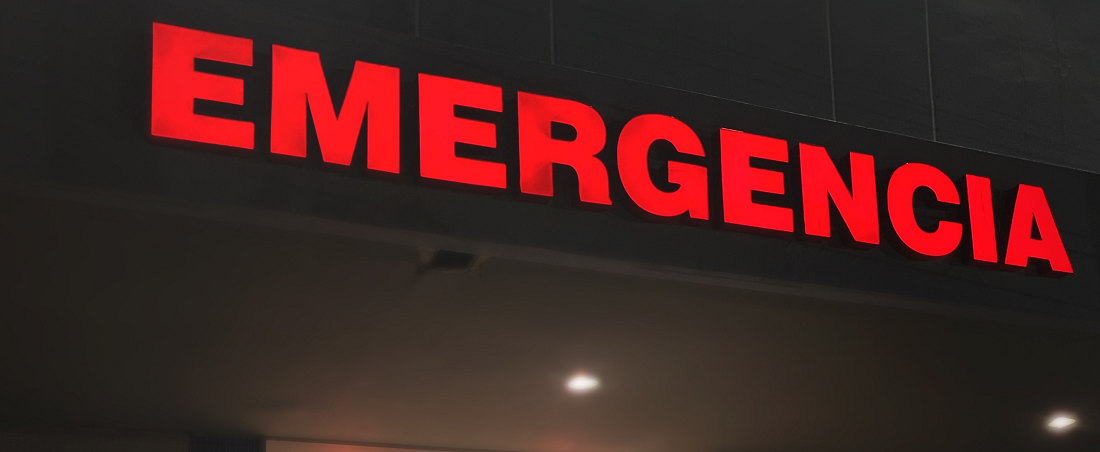With Costa Rica being a popular destination among retirees, the quality of healthcare is something at the forefront of people’s minds when considering whether to make the move. Thankfully, the standard of healthcare in Costa Rica is good. In fact, the country boasts some of the best facilities in Latin America.
Costa Rica has two healthcare systems, both of which are accessible to expats. There is both a government-run universal healthcare system and a private healthcare sector. Both systems are constantly being developed and improved, and the majority of expats tend to use a combination of the two.
Compared to most developing countries, the cost of healthcare in Costa Rica is low across the board, and many doctors, particularly those working in the private sector, speak good English.
Public healthcare in Costa Rica
The government-run universal healthcare system in Costa Rica is called the Costa Rica Social Security Fund or Caja Costarricense de Seguro Social (CCSS). The system is most commonly referred to as ‘CAJA’. Through its network of hospitals and clinics, CCSS is responsible for providing cost-effective healthcare to the population. Although the system is often overstretched, it has served Costa Rica well.
The system is funded by small monthly contributions based on income level. The CAJA system provides full coverage for GP visits, prescription medications, in-patient hospital care and all medical procedures.
Private healthcare in Costa Rica

While many expats have access to public healthcare in Costa Rica, most opt for private services or a combination of public and private services. These offer speedier services and a higher standard of care. Although more costly than public services, private healthcare is still highly affordable compared to what expats may be used to paying in Europe and North America.
The public and private healthcare systems in Costa Rica typically work well together, with most expats using a mixture of both services. Expats will likely use public services for regular GP visits and employ private healthcare for more specialised care, such as diagnostic services and major procedures.
Health insurance in Costa Rica
Expats who are legal residents of Costa Rica are required to sign up for CAJA and make monthly contributions based on a percentage of their income. This allows them free treatment for everything from a check-up and prescription drugs to major surgeries under the CCSS.
Expats will need to secure private health insurance to ensure they have coverage while waiting for their CAJA membership to kick in. While dependent spouses are also covered by CCSS, other visitors and tourists will only have access to public healthcare services in emergencies.
Under the Costa Rican private healthcare system, patients have the option of paying cash for their treatments or using insurance. For peace of mind, most expats opt for private health insurance to ensure all their healthcare costs are covered.
The Costa Rican government also offers health discount plans known as Instituto de Seguro Nacional (INS). This allows expats to access a certain number of GP and specialist appointments and diagnostic tests, such as X-rays and blood tests.
Pharmacies and medicines in Costa Rica

Pharmacies in Costa Rica are known as farmacias and can be found scattered all over the country. They tend to be well stocked, and most medicines can be ordered if they aren’t immediately available. Prescriptions are generally only required for antibiotics and psychotropic drugs, so regulations are far less restrictive than in Europe, North America or Australia.
Vaccinations for Costa Rica
There are several vaccinations recommended for Costa Rica, particularly for expats moving to smaller cities or rural areas. Expats arriving from certain African, Mediterranean and Caribbean countries are required to be vaccinated against yellow fever. It’s also recommended for expats to take prophylactic malaria medication. Over and above routine vaccinations, other recommended vaccinations include:
- Typhoid
- Rabies
- Measles-mumps-rubella (for infants younger than a year old)
- Hepatitis A and B
Emergency services in Costa Rica

The main emergency number in Costa Rica is 911. This connects the caller to the police, fire department and emergency medical services. Emergency lines are manned by bilingual Spanish and English speakers. Ambulance services in Costa Rica are relatively fast and efficient, and paramedics are well-trained.
What do expats say about healthcare in Costa Rica?
"Luckily I haven’t had any experiences with doctors or hospitals. I have heard that the healthcare is good here, however, and much cheaper than other countries like the USA. Cima Hospital in San José is the best hospital in the country." See our interview with Canadian expat Jason to learn more about living in Costa Rica.
"It’s excellent and affordable but not perfect, as in all countries. The longevity rate is comparable with many first world nations. We have both a public and private system. Many foreigners come here for joint replacement, cosmetic dentistry and plastic surgery." Read more of Christopher's observations about expat life in Costa Rica.
Further reading
►Learn about Transport and Driving in Costa Rica
Photo credits: Emergency sign by Luis Sanchez from Unsplash.
Are you an expat living in Costa Rica?
Expat Arrivals is looking for locals to contribute to this guide, and answer forum questions from others planning their move to Costa Rica. Please contact us if you'd like to contribute.
Expat Health Insurance
Cigna Global Health Insurance.
Medical insurance specifically designed for expats. With Cigna, you won't have to rely on foreign public health care systems, which may not meet your needs. Cigna allows you to speak to a doctor on demand, for consultations or instant advice, wherever you are in the world. They also offer full cancer care across all levels of cover, and settle the cost of treatments directly with the provider.
Moving Internationally?
International Movers. Get Quotes. Compare Prices.
Sirelo has a network of more than 500 international removal companies that can move your furniture and possessions to your new home. By filling in a form, you’ll get up to 5 quotes from recommended movers. This service is free of charge and will help you select an international moving company that suits your needs and budget.
Get your free no-obligation quotes from select removal companies now!


